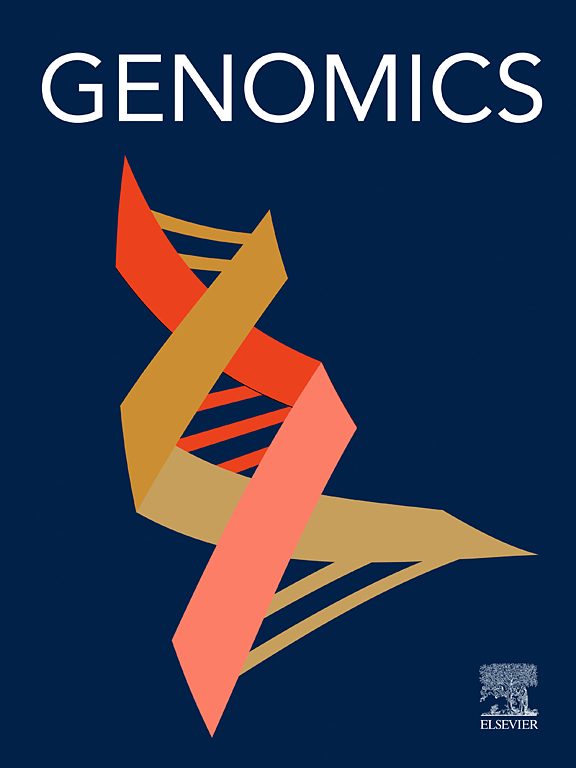Integrated analysis of single-cell and bulk RNA sequencing identifies APOC1 as a biomarker and therapeutic target for G0/G1 cell cycle arrest in cholangiocarcinoma
IF 3.4
2区 生物学
Q2 BIOTECHNOLOGY & APPLIED MICROBIOLOGY
引用次数: 0
Abstract
Cholangiocarcinoma is characterized by its high malignancy, frequent recurrence and insensitivity to conventional radiotherapy and chemotherapy. This resistance may be associated with the presence of cells in the G0/G1 arrest phase within the cancer. Cancer cells in the G0/G1 phase are resistant to therapies targeting actively dividing cells, allowing them to evade conventional adjuvant treatments and survive. When conditions become favorable, these quiescent cells can re-enter the cell cycle, proliferate and potentially contribute to cancer recurrence. However, the biomarkers for identifying cells in the G0/G1 arrest phase within cholangiocarcinoma and the molecular mechanisms inducing G0/G1 arrest remain unclear. In our study, we first identified APOC1 as a characteristic gene for G0/G1 phase arrest in cholangiocarcinoma through bulk RNA sequencing (bulkRNA-seq). We then used single-cell RNA sequencing(scRNA-seq) for cell cycle inference and localized the expression peaks of APOC1 to verify its active cell cycle phase. Our experiments demonstrated that APOC1 can induce G0/G1 phase arrest in cholangiocarcinoma cells by inhibiting the Wnt/β-catenin signaling pathway, thereby suppressing cell proliferation, migration and invasion. This suggests that APOC1 may serve as a key regulatory factor and an important biomarker for cells in the G0/G1 phase of cholangiocarcinoma.
单细胞和大体积RNA测序的综合分析确定了APOC1作为胆管癌G0/G1细胞周期阻滞的生物标志物和治疗靶点。
胆管癌具有恶性程度高、易复发、对常规放化疗不敏感等特点。这种耐药性可能与癌症中处于G0/G1停滞期的细胞有关。处于G0/G1期的癌细胞对针对活跃分裂细胞的治疗具有耐药性,使其能够逃避常规辅助治疗并存活。当条件变得有利时,这些静止的细胞可以重新进入细胞周期,增殖并可能导致癌症复发。然而,用于鉴定胆管癌中G0/G1阻滞期细胞的生物标志物和诱导G0/G1阻滞的分子机制尚不清楚。在我们的研究中,我们首先通过大量RNA测序(bulkRNA-seq)确定了APOC1是胆管癌G0/G1期阻滞的特征基因。然后,我们使用单细胞RNA测序(scRNA-seq)进行细胞周期推断,并定位APOC1的表达峰以验证其活跃的细胞周期阶段。我们的实验表明,APOC1可以通过抑制Wnt/β-catenin信号通路诱导胆管癌细胞G0/G1期阻滞,从而抑制细胞增殖、迁移和侵袭。这表明,APOC1可能是胆管癌G0/G1期细胞的关键调控因子和重要的生物标志物。
本文章由计算机程序翻译,如有差异,请以英文原文为准。
求助全文
约1分钟内获得全文
求助全文
来源期刊

Genomics
生物-生物工程与应用微生物
CiteScore
9.60
自引率
2.30%
发文量
260
审稿时长
60 days
期刊介绍:
Genomics is a forum for describing the development of genome-scale technologies and their application to all areas of biological investigation.
As a journal that has evolved with the field that carries its name, Genomics focuses on the development and application of cutting-edge methods, addressing fundamental questions with potential interest to a wide audience. Our aim is to publish the highest quality research and to provide authors with rapid, fair and accurate review and publication of manuscripts falling within our scope.
 求助内容:
求助内容: 应助结果提醒方式:
应助结果提醒方式:


